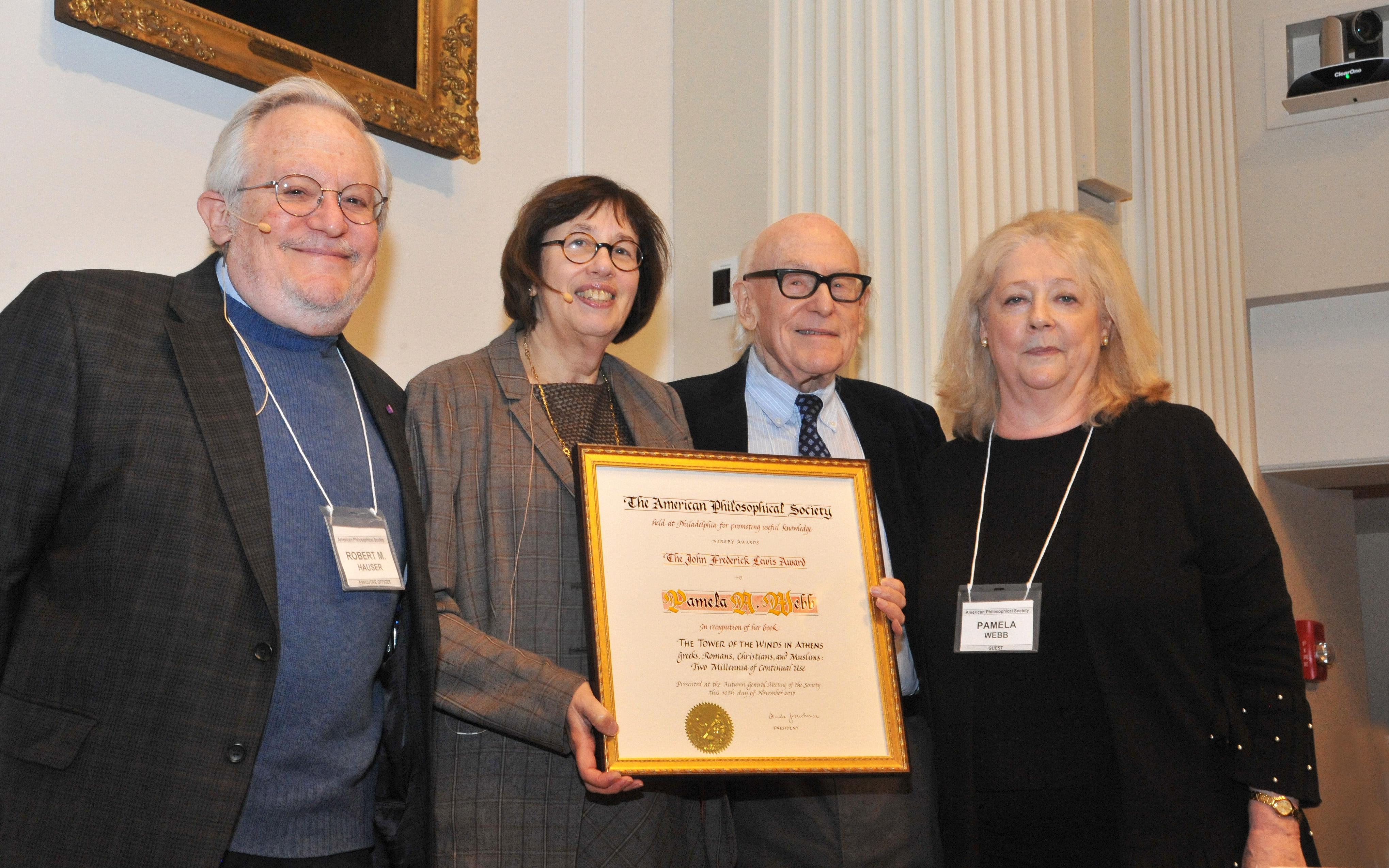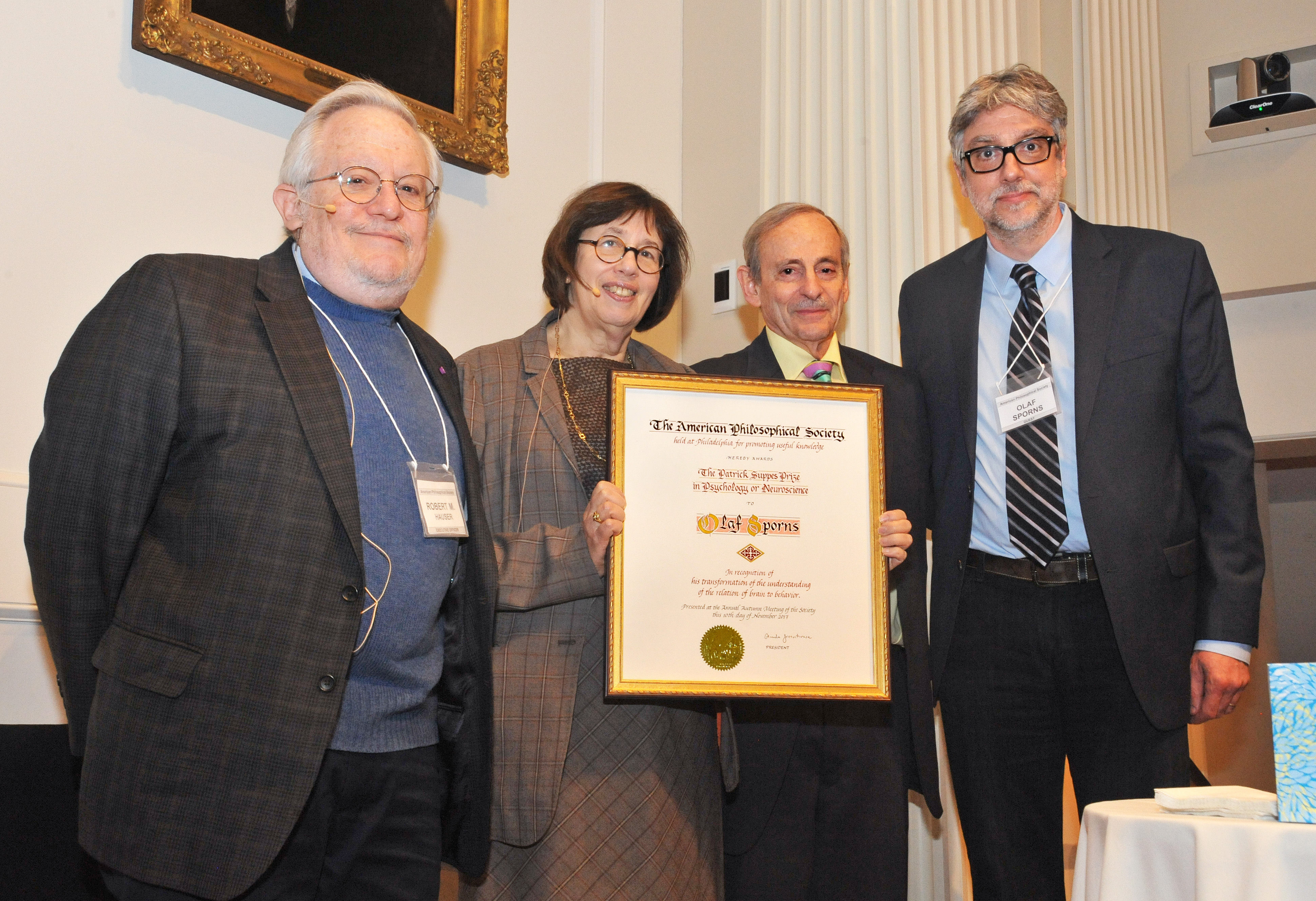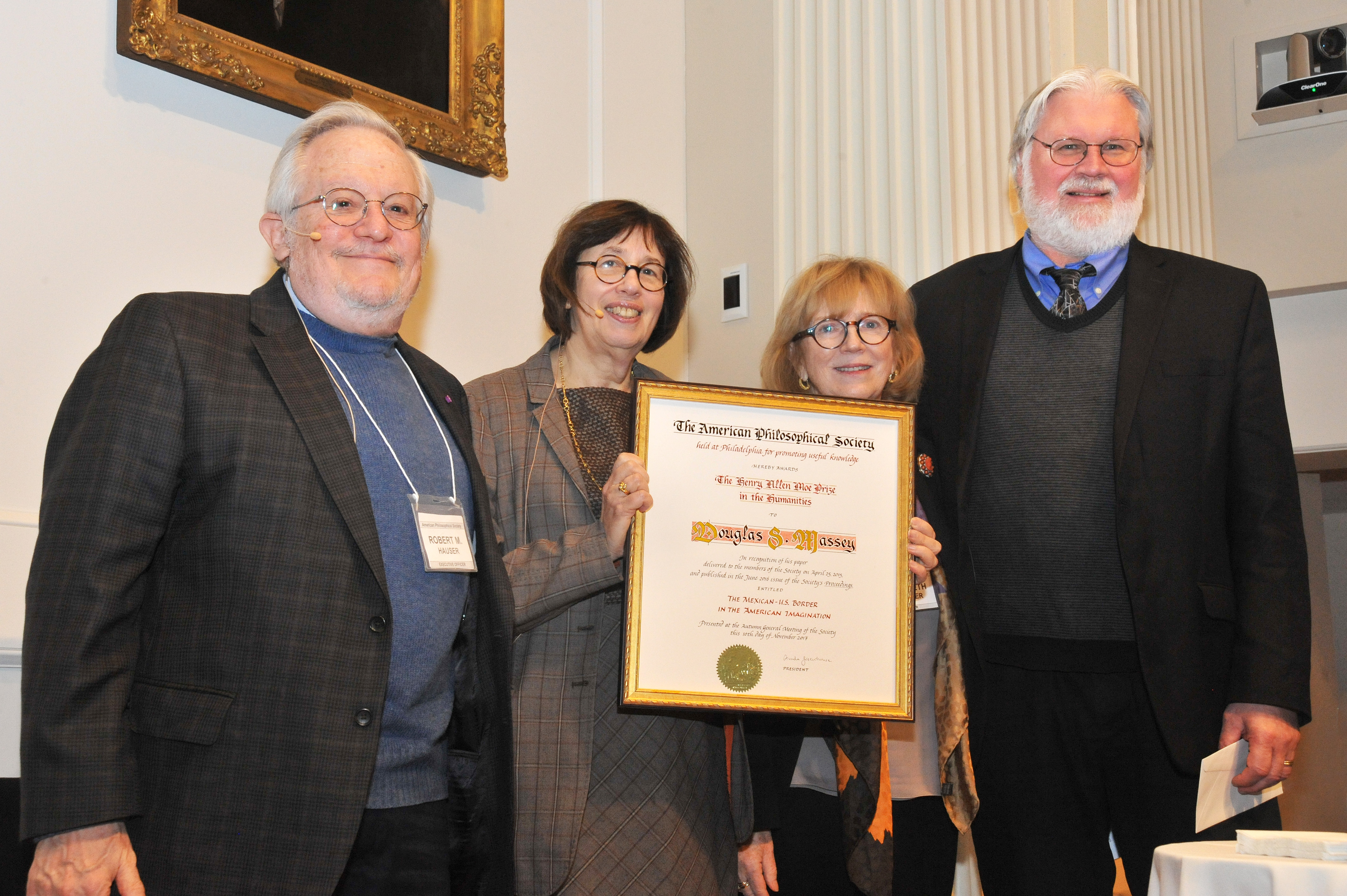Gift Levels and Benefits
Gifts of $100+
Invitations to monthly APS Library & Museum tours (registration required, first-come, first-serve) and reception prior to APS public programs in Benjamin Franklin Hall; APS News, annual print publication
Gifts of $250+
All above plus APS Museum exhibition preview; invitation to “meet and greet scholars in residence” garden party; copy of APS Transactions (special issues of APS conferences, PDF or hard copy)
Gifts of $500+
All above plus APS Press publication of your choice; invitation to private events with APS staff and fellows and other scholars, including participating APS Members
Philosophical Circle, $1,000+
All above plus APS Meeting* April OR November, guest invitation for two to attend; invitation for two to attend spring and fall salon supper discussions and social gatherings
Independence Circle, $2,500+
All above plus APS Meetings* April AND November, guest invitation for two to attend; invitations for private, small group gatherings among the treasures of Franklin’s Library
Founder’s Circle, $5,000+
All above plus opportunity to host a private dinner for up to 12 people in historic Philosophical Hall or Library Hall with the Librarian or CEO**
1743 Circle, $10,000+
All above plus opportunity to host a private event, including a social hour and dinner, for up to 25 people in Philosophical Hall or Library Hall with the Librarian or CEO**
Nullo Discrimine Circle, $25,000
All above. Donors at these levels enjoy custom-designed tours; invitations to private receptions and dinners with local APS members and leadership, including APS gatherings in Philadelphia and beyond; other occasions and opportunities tailored to donors’ interests
*APS Meetings are twice-yearly gatherings in Philadelphia during which elected APS Members and other distinguished scientists and scholars present lectures and symposia on diverse topics accompanied by lively intellectual exchange.
**catering/food/beverage costs not provided
The American Philosophical Society is a private, non-profit, tax-exempt, 501(c)(3) organization under the provisions of the Internal Revenue Code of the United States Department of the Treasury. The Society is registered as a charitable organization with the Commonwealth of Pennsylvania’s Bureau of Charitable Organizations and is authorized to solicit charitable contributions under the conditions and limitations set forth under the Solicitation of Funds for Charitable Purposes Act. The official registration and financial information for the American Philosophical Society may be obtained from the Pennsylvania Department of State by calling toll free, within Pennsylvania, 1-800-732-0999. Registration does not imply endorsement.
The tax ID number for the American Philosophical Society is 23-1353269.
For more information, please contact Alexis Anderson at 215-599-4303 or [email protected].




